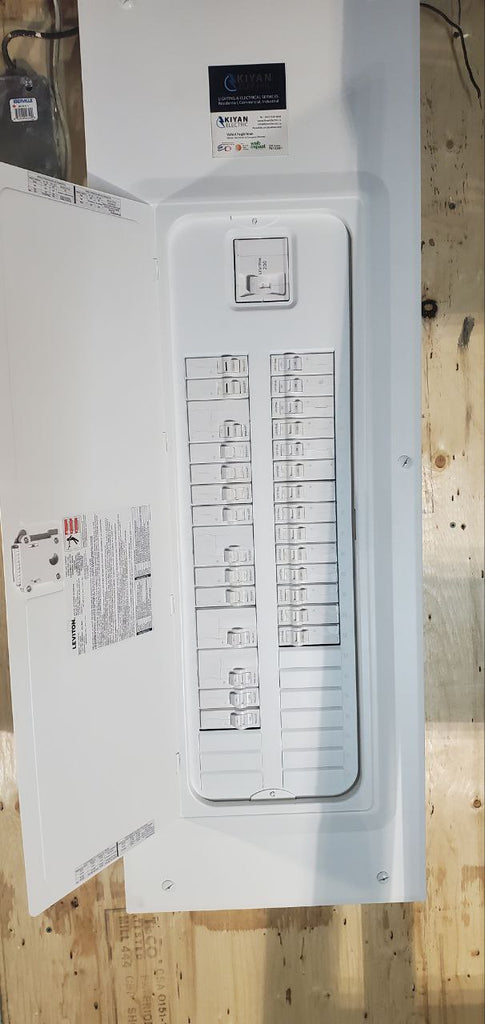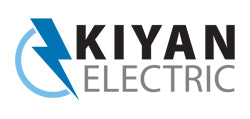Electrical Panel Upgrade 100A to 200A, What to Consider

Introduction
Electrical panel upgrades are a great way to improve your home and it's electrical system. They can also be frightening, if you don't know what you're doing. However, with the right planning, you can make sure your electrical panel upgrade is a success! Here are some tips for making sure your next electrical panel upgrade goes smoothly:
Identify the Purpose of Your Electrical Panel Upgrade
When you are planning your electrical panel upgrade, it's important to identify the purpose of your new electrical panel. A lot of homeowners choose to upgrade their home's electrical system because they want to improve the safety, efficiency, look and feel of their home.
Here are some common reasons people choose to upgrade their electrical system:-
- Improve Safety - Upgrading a home's wiring can help prevent fires from starting in the walls or ceiling when there is an overload on demand for power by appliances. This can also make it easier for firefighters if there ever was an emergency situation at your house because they will know exactly where all the wires run so they don't trip over them while trying to save lives!
- Improve Comfort - Having newer technology means that you'll have better air conditioning units than before which mean less humidity build up during hot summer months! Also having more lights installed throughout different rooms makes it easier for everyone else who may live here too because now everyone has their own light source instead just one small lamp above each bedside table like before...
-
To get free estimate for your panel upgrade please fill out free estimate form:

Know What Electrical Load to Expect
Before you can choose the right electrical panel upgrade for your home, you need to know what the electrical load is. The electrical load is the amount of power that your home draws from its electrical system. It's measured in kilowatts (kW).
For example, if your family of four uses a lot of devices at once and they all draw 1 kW on average--which means they're each using 1,000 watts--your total household usage would be 4 kilowatts (4 kW).
Choose the Right Type of Electrical Panel Upgrade
When planning your electrical panel upgrade, you need to consider the following:
- Choose a panel that has enough capacity for your needs. If you already have many circuits installed in your home and want to add more, it's important that you choose an upgraded system with an appropriately sized breaker box.
- Choose a panel that matches the electrical system in your home . The National Electrical Code (NEC) requires all new homes built after January 1st 2008 to include ground fault circuit interrupters (GFCIs) on outlets near sinks and baths so they're accessible by children who may be crawling through wet areas. This requirement also applies to older homes if they are being remodeled or renovated so they comply with current codes related to safety standards such as fire protection systems or emergency lighting requirements
Plan for Future Growth or Expansion
When planning for future growth or expansion, it's important to consider the following:
- How much space will your electrical panel need?
- How many circuits do you need in each room? If you have an older home with only one circuit per room, adding more circuits may be necessary. If this is the case, a larger capacity panel can help accommodate the extra load. On the other hand, if you have newer homes with multiple outlets per room and don't anticipate any major changes in usage patterns, then upgrading to a larger capacity panel might not be necessary--though it's always better safe than sorry!
Electrical panel upgrades are a great way to improve your home and it's electrical system.
Electrical panel upgrades are a great way to improve your home and it's electrical system.
Electrical panel upgrades can help you avoid electrical fires by making sure that your current wiring is up to code, and by upgrading the hardware in your breaker box. They also allow you to connect more devices without overloading circuits or causing shorts in other parts of the house that may cause damage or injury. Additionally, an upgraded circuit breaker will be able to handle higher wattage loads than a standard breaker would handle otherwise, which can save money on electric bills by reducing the amount of energy wasted through overloading circuits as well as allowing homeowners who want more power (such as those with high-tech appliances) greater flexibility when choosing which outlets they want installed throughout their homes. Finally, having upgraded breakers means there will be less chance for fire hazards later down road after several years have passed since installation; so long-term benefits include less risk for potential fires due to age related issues such as corrosion due lack maintenance over time."
Conclusion
The benefits of an electrical panel upgrade are many. It can improve the safety and efficiency of your home, while also helping you save money on energy costs over time. If you're considering an electrical panel upgrade for your home or business, we hope this article has given you some insight into what steps need to be taken before making that investment.
To get free estimate for your panel upgrade please fill out free estimate form:

